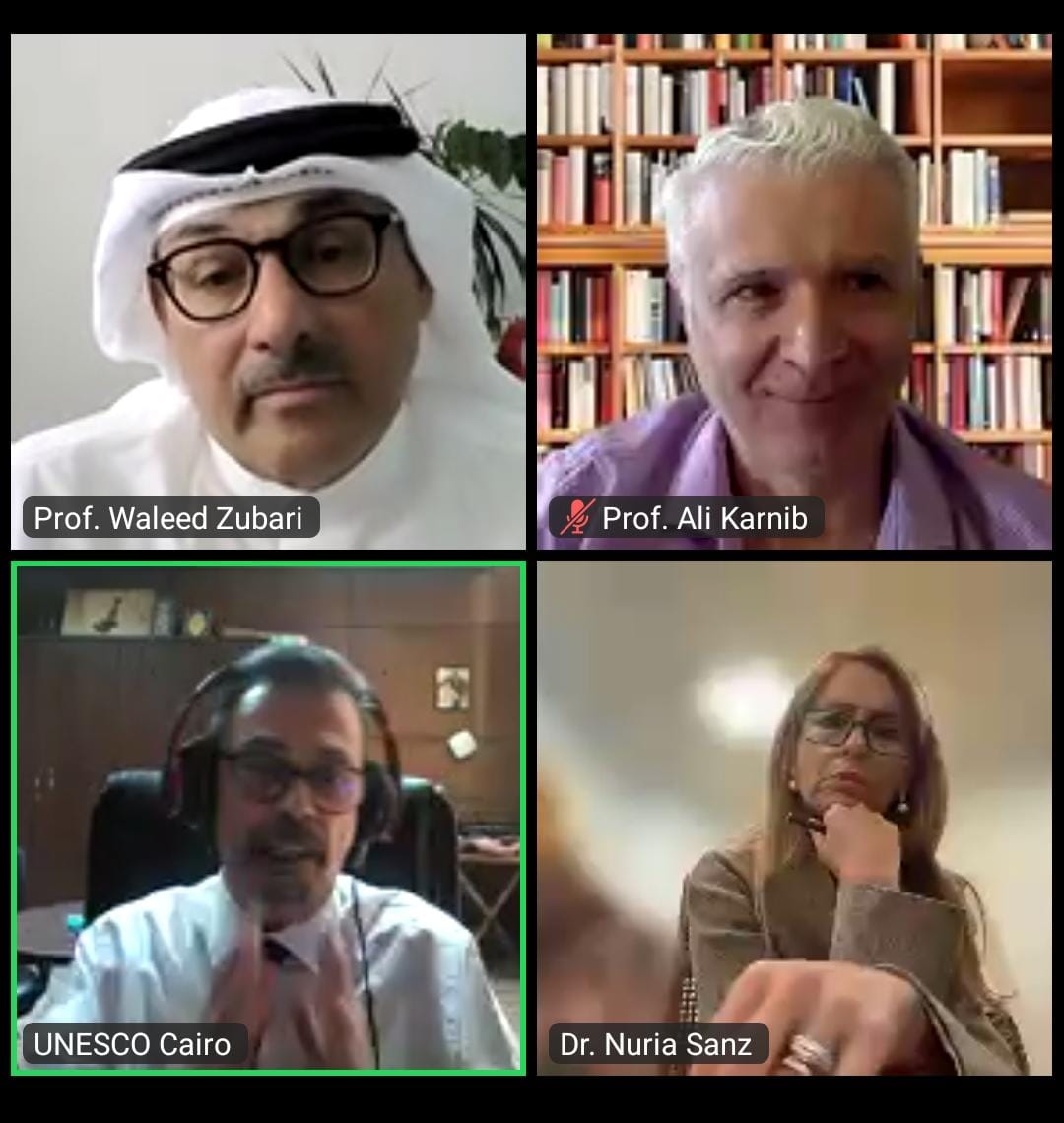
Arabian Gulf University Participates in UNESCO Expert Group Meeting on “The Water-Energy-Food-Ecosystems Nexus: A Framework for Climate Change Adaptation from Regional to Community Scales”
Arabian Gulf University
28 Aug, 2024
The Arabian Gulf University (AGU) has recently participated in a virtual expert group meeting on “The Water-Energy-Food-Ecosystems Nexus: A Framework for Climate Change Adaptation from Regional to Community Scales”. This roundtable was organised yesterday, Tuesday (August 28, 2024), by the UNESCO Regional Office in Cairo in collaboration with the League of Arab States. The meeting aimed to review the latest developments in the implementation of the Water-Energy-Food-Ecosystem Nexus (WEFE Nexus) in the region and to showcase examples of its application at national, local and Arab community levels. This initiative seeks to enhance the nexus approach and engage youth as future stakeholders, leveraging their innovative perspectives and social awareness to address nexus challenges through a potential youth-led research initiative at UNESCO. The virtual expert meeting saw the participation of more than 60 individuals.
AGU was represented by Prof. Waleed Zubari, Water Resources Management Professor. During the roundtable, experts discussed how to advance nexus thinking and approaches as frameworks for addressing sustainable development in light of climate change impacts within the Arab region.
The participants emphasised the significant rise in demand for fresh water, energy, and food in the Arab region, largely driven by population growth and economic development. They highlighted the urgent need for a comprehensive and systematic approach to address the interdependence of water, energy and food resources. This is particularly important given the existing gap between these resources and their interconnected ecosystems, wherein water is necessary for energy generation, while both water and energy are required for traditional food production.
Moreover, the experts stressed the importance of understanding the interdependencies and trade-offs involved in the planning and management of these three sectors, as well as recognising the synergies between them. This understanding is essential for the development of integrated strategic plans.
In his speech, Prof. Zubari noted that, although the concept of the water-energy-food nexus is widely recognised in the Arab region as a suitable solution for securing these three vital sectors and their sustainable management, progress in its implementation remains limited. He identified several constraints related to the enabling environment, which can be categorised into scientific aspects concerning the role of research in bridging knowledge gaps, governance aspects related to institutional structures for the nexus, capacity aspects focusing on enhancing institutional and individual capabilities, and investment aspects aimed at stimulating private sector involvement in innovative projects related to the water-energy-food nexus.
Prof. Zubari concluded his address by recommending the establishment of a research network to bridge the science-policy interaction gap, identify best governance practices, and develop capacity-building programmes to address existing gaps related to the nexus approach.
